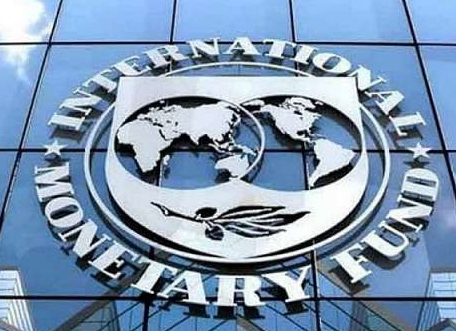The International Monetary Fund (IMF) has projected a positive economic outlook for Nigeria, crediting President Bola Tinubu’s reform agenda for insulating the nation against global economic headwinds.
Axel Schimmelpfennig, the IMF’s Mission Chief for Nigeria, led a delegation to Lagos and Abuja from 2nd to 15th April to conduct discussions for the 2025 Article IV Consultations with Nigerian officials.
During the visit, the team held meetings with Wale Edun, Minister of Finance and Coordinating Minister of the Economy; Abubakar Kyari, Minister of Agriculture and Food Security; Yemi Cardoso, Governor of the Central Bank of Nigeria (CBN); officials from the Federal Ministry of Environment; as well as key stakeholders from the private sector, academia, trade unions, and civil society.
In an official statement, Schimmelpfennig acknowledged that Nigerian authorities had taken “important steps” to stabilise the economy, bolster resilience, and foster growth.
He highlighted key measures, including the cessation of the CBN’s financing of fiscal deficits, the removal of the costly petrol subsidy, and reforms to improve the efficiency of the foreign exchange market.
“The Nigerian authorities have taken important steps to stabilise the economy, enhance resilience, and support growth,” Schimmelpfennig said.
“The financing of the fiscal deficit by the central bank has ceased, costly fuel subsidies were removed, and the functioning of the foreign exchange market has improved. Gains have yet to benefit all Nigerians as poverty and food insecurity remain high.
”The outlook is marked by significant uncertainty. Elevated global risk sentiment and lower oil prices impact the Nigerian economy.
“The reforms since 2023 have put the Nigerian economy in a better position to navigate this external environment. Looking ahead, macroeconomic policies need to further strengthen buffers and resilience, while creating enabling conditions for private sector-led growth.
“The authorities communicated to the mission that they will implement the 2025 budget in a manner that is responsive to the decline in international oil prices.”
The IMF official also recommended a neutral fiscal stance to support monetary policy in bringing down inflation.
He added that fiscal savings from petrol subsidy reforms should be channelled into the national budget to protect critical investments.
Schimmelpfennig further advised that the CBN maintain a tight monetary policy stance to curb inflation.
“In particular, adjustments should protect critical, growth-enhancing investment, while accelerating and broadening the delivery of cash transfers under the World Bank-supported program to provide relief to those experiencing food insecurity,” he said.
“A tight monetary policy stance is required to firmly guide inflation down.”
Schimmelpfennig said the monetary policy committee’s data-dependent approach has served Nigeria well and will help navigate elevated macroeconomic uncertainty.









































Discussion about this post